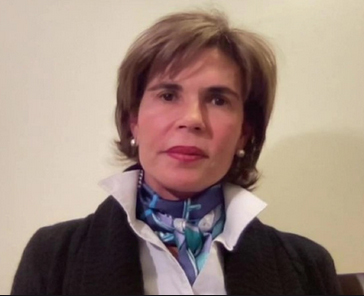by the El Reportero‘s wire services
shared from BBC
Police in Nicaragua have placed opposition presidential hopeful Cristiana Chamorro under house arrest.
Prosecutors have accused Chamorro of money laundering, which she denies, and demand she be barred from running in November’s election.
Chamorro is seen by many in the opposition as their best hope of defeating President Daniel Ortega, who is expected to run for a fifth term.
Her mother defeated Ortega in the 1990 presidential poll.
The arrest is the latest in a series of measures which the opposition says are aimed at crushing its chances of defeating the government in the upcoming election.
Who is Cristiana Chamorro?
The 67-year-old journalist comes from one of Nicaragua’s most influential families.
Her father, Pedro Joaquín Chamorro, was the editor of newspaper La Prensa, which opposed the autocratic Somoza family that ruled Nicaragua for decades. He was assassinated in 1978.
Violeta Chamorro, her mother, won the 1990 election to become the first female president in Latin America, putting an end to Daniel Ortega’s first 11 years as president.
Cristiana Chamorro had until recently been leading the Violeta Barrios de Chamorro Foundation, which is focused on press freedom. But she stepped down from the post earlier this year.
On Tuesday, she announced she would seek to become the presidential candidate for the opposition Citizen’s Alliance. The Alliance wants to field one single name in the hope of defeating Ortega.
The president, who has been in power since January 2007, is widely expected to run again, though an official announcement is yet to be made.
How did things get here?
Shortly after Chamorro’s announcement, prosecutors accused her of “abusive management [and] ideological falsehood” during her time at the helm of the foundation.
She has also been charged with “the laundering of money, property and assets, to the detriment of the Nicaraguan State and society”.
The investigation against her was opened in May at the request of the Ortega government. Chamorro says they are trumped up charges to prevent her from challenging the president.
On Wednesday, shortly before Chamorro was due to give a news conference, police raided her home in the capital, Managua, and placed her under house arrest.
What’s the reaction been?
In a statement issued before Chamorro’s arrest, the regional body Organization of American States (OAS), of which Nicaragua is a member, said the country was “heading for the worst possible elections”.
“The use of the prosecutor’s office, injunctions and precautionary measures, the politicized handling of justice and the de facto banning of candidates are in violation of the Inter-American Democratic Charter, the OAS Charter, the instruments on human rights and of international pacts to which Nicaragua is party,” the statement read.
US Secretary of State Antony Blinken also condemned the move, saying on Twitter: “Arbitrarily banning opposition leader [Chamorro] reflects Ortega’s fear of free and fair elections. Nicaraguans deserve real democracy.”
Opposition parties in Nicaragua accused the government of “unleashing a witch hunt”, alleging Ortega feared “going to a free, transparent and observed” election.
Meanwhile government-friendly newspapers printed the arrest warrant issued for Chamorro.
What’s the background?
Last December, the legislative, which is dominated by parties allied with the government, passed a law giving the government the power to ban candidates from running for office if they are deemed to be “traitors” to Nicaragua.
The government says the law aims to protect “the independence, the sovereignty and self-determination” of Nicaragua. It claims the country is under threat from imperialist powers in the US and “coup-mongers” within Nicaragua who are determined to overthrow the government.
The opposition alleges that repression has grown since 2018, when anti-government protests swept through the country and were met with a violent police response.



